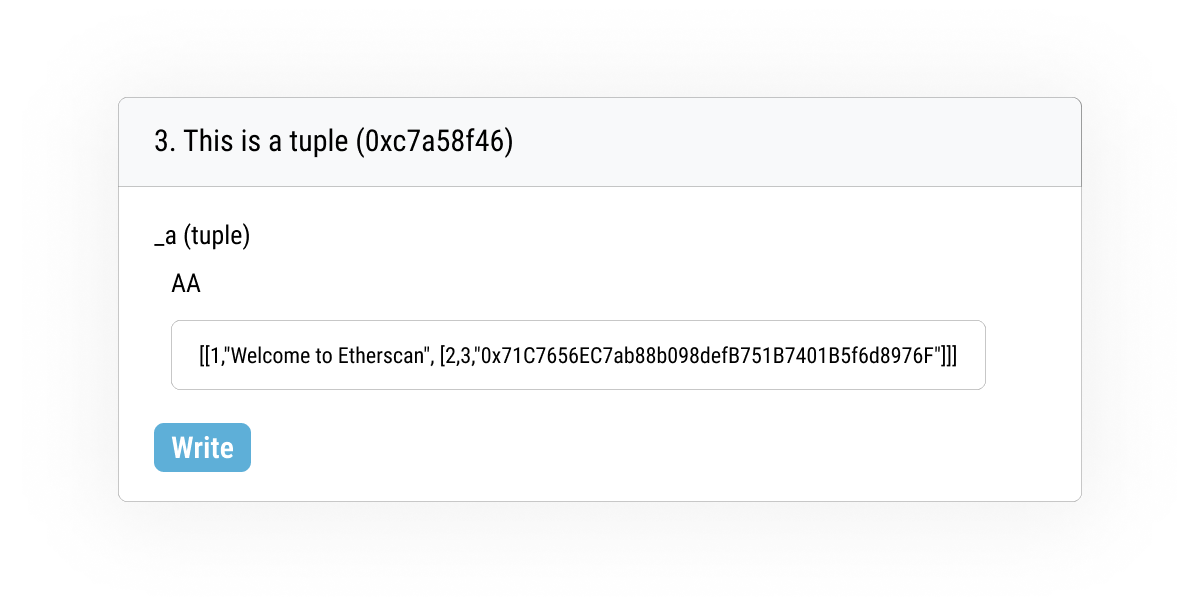
On Etherscan, tuples are commonly used in the context of Solidity contracts. When you interact with a contract through Etherscan, you may see tuple values displayed in the contract's input and output fields.
In programming, a tuple is a data structure that allows you to group together a fixed number of related values of different types. It is similar to an array, which also stores multiple values, but with a few key differences.
A tuple can hold any combination of data types, such as integers, strings, floats, and other tuples. It has a fixed size, which means you can't add or remove elements once it is defined. Each element in a tuple is identified by its position, or index, which starts at 0.
Tuples are defined by enclosing a comma-separated list of variables inside parentheses, like so:

Let's say you have a contract function that returns a tuple of two values: a string and an integer. When you call this function on Etherscan, the output field will display the tuple as a comma-separated list of values enclosed in parentheses. So, if the function returns ("hello", 42), the output field will display "(hello, 42)".
Similarly, if you want to pass a tuple as an input parameter to a contract function on Etherscan, the values should be provided as a comma-separated list enclosed in parentheses. For example, if you have a function that takes a tuple of two values (a string and an integer) as input, the values should be passed as ("hello", 42).
It is important to note that when you are working with tuples on Etherscan, the order of the elements in the tuple is critical. If you pass the values in the wrong order or if the contract function returns the values in a different order than expected, you may get unexpected results or errors.
In summary, tuples are a useful data structure in Solidity that allow you to store related values. On Etherscan, you may encounter tuples when interacting with contract functions that take or return multiple values. It is important to understand the format and order of tuple values when working with them on Etherscan to ensure that you are passing or receiving the correct values.
To know how to properly input tuple values on Etherscan, kindly refer to this article.